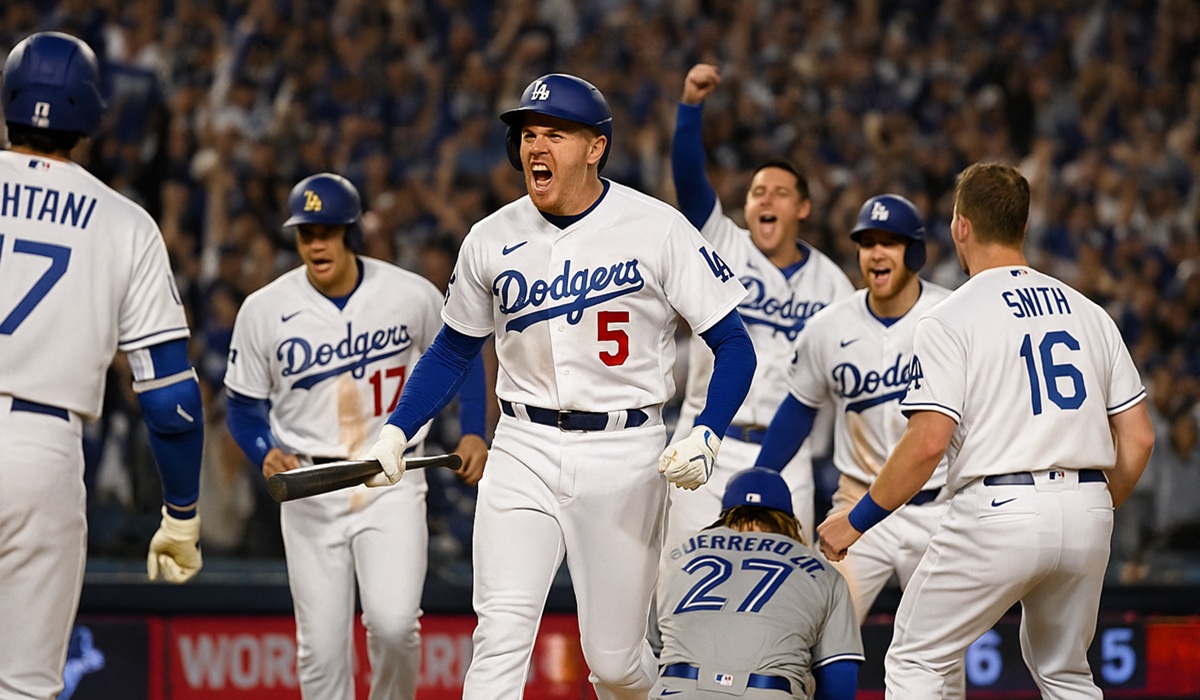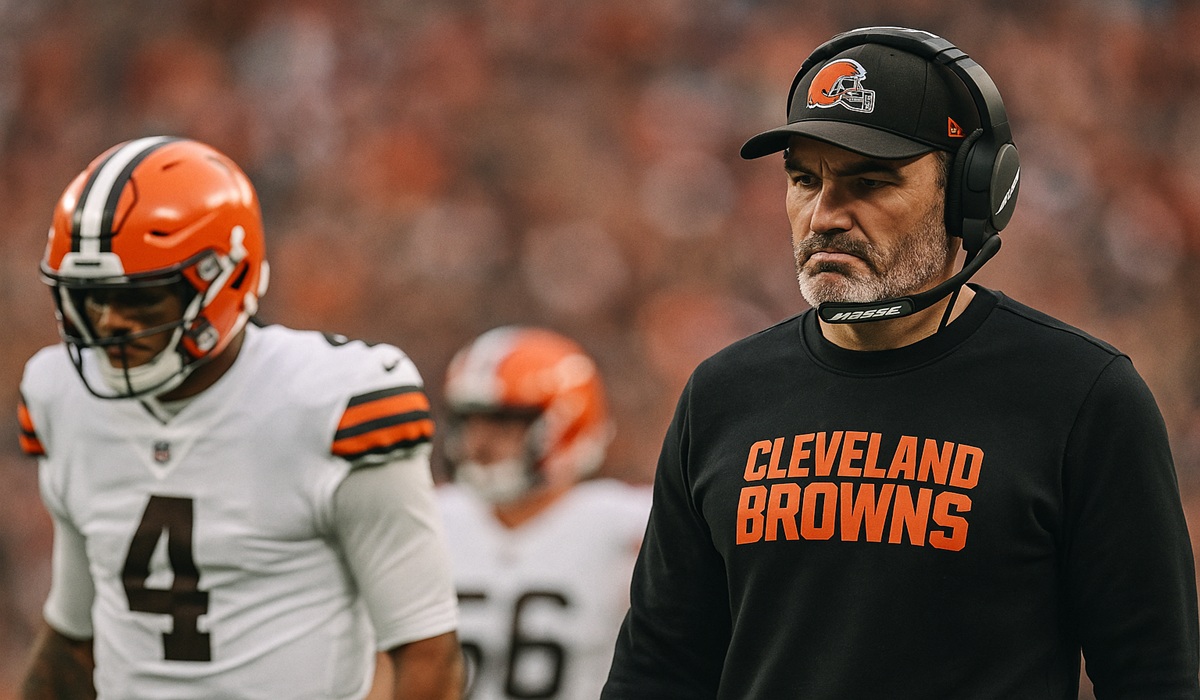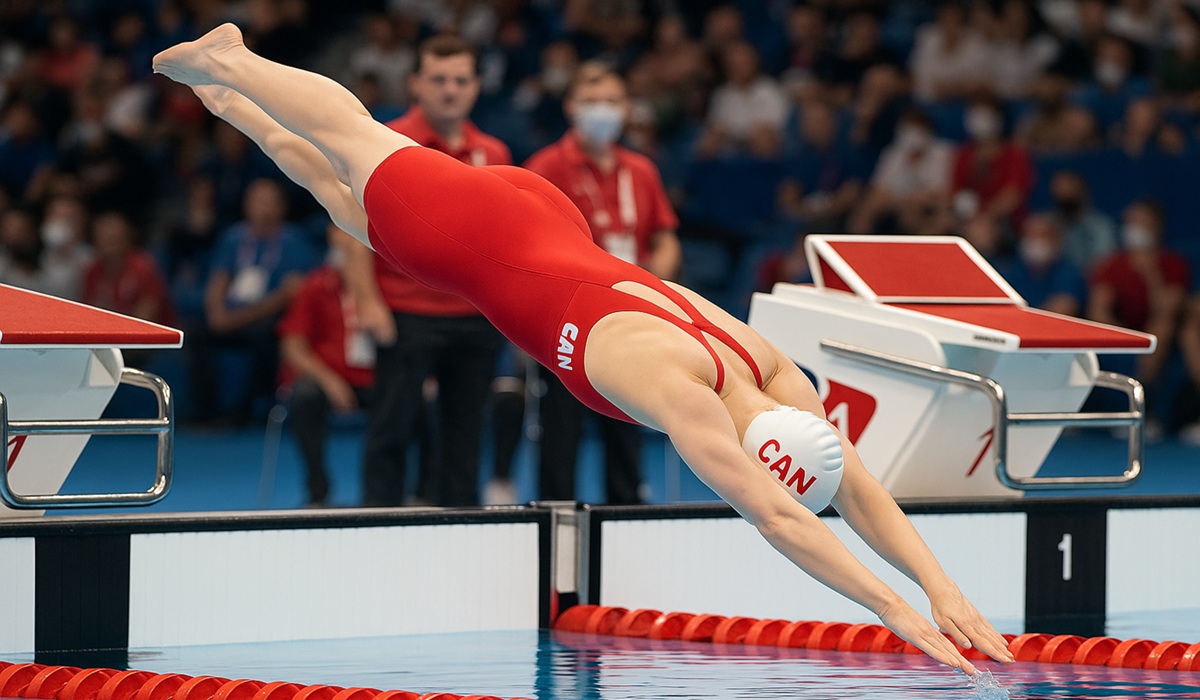Title: Heartbreak at Sunrise: Dodgers Edge Blue Jays 6–5 in 18-Inning World Series Epic
- Kingston Bailey
- Sports
- October 28, 2025

It was the kind of game that tests not just players, but fans, broadcasters, and even the stadium lights themselves. In a marathon that stretched deep into the early hours of the morning, the Los Angeles Dodgers outlasted the Toronto Blue Jays 6–5 in an 18-inning classic at Dodger Stadium—a game that instantly earned its place among the greatest in World Series history.
From the first pitch, there was electricity in the air. The Dodgers faithful were loud, the Blue Jays bench looked loose, and both teams swung early and often. Toronto came out aggressive, jumping ahead 3–0 in the second inning on Alejandro Kirk’s thunderous three-run homer off Los Angeles starter Walker Buehler. It was the kind of swing that silenced the home crowd and reminded everyone that the Jays weren’t just happy to be here—they came to win.
But the Dodgers never panic at home. Freddie Freeman got the crowd roaring again with a towering home run in the fourth, followed by a Shohei Ohtani RBI double that sliced Toronto’s lead to one. By the middle innings, both sides were trading blows like heavyweights. Every time the Jays pulled ahead, the Dodgers clawed back. By the seventh, the score was tied 5–5, and what followed was a war of nerves that would stretch longer than anyone could have imagined.
Pitchers rotated in and out like marathon runners handing off the baton. Jays reliever Erik Swanson struck out Freeman with the bases loaded in the ninth, preserving the tie and sending the game into extras. The Dodgers countered with a string of near-perfect relief appearances, keeping Toronto’s bats quiet inning after inning. By the 12th, both dugouts were running low on arms, position players were lacing up gloves just in case, and the clock had long since crossed midnight in both Los Angeles and Toronto.
Shohei Ohtani’s performance will be remembered as something out of legend. Two home runs, two doubles, and five walks—four of them intentional. The Jays wanted no part of him in the late innings, and who could blame them? Ohtani seemed to exist in a different rhythm, calmly walking to the plate while the rest of the game spun into chaos. Every time he stepped into the box, the tension was unbearable.
By the 15th inning, fatigue was everywhere. Players leaned on the dugout rails, eyes half open but hearts fully engaged. Fans who had promised themselves to “just watch one more inning” were still there at 2 a.m., watching their teams grind through baseball’s most punishing test—attrition. In the 16th, Toronto nearly broke through when Vladimir Guerrero Jr. ripped a double into left-center, only to be stranded when a tired but determined Freddie Freeman made a diving stop on a grounder to end the threat.
Finally, as dawn neared, it happened. In the bottom of the 18th, Freeman—who had already played the role of hero once—stepped up again. On a 2-2 fastball from Jays reliever Brendon Little, he turned on the pitch and sent it soaring deep into center field. The crowd rose to its feet as the ball carried and carried—then disappeared into the seats. Pandemonium erupted. The Dodgers bench spilled onto the field. Fireworks crackled above Chavez Ravine.
Freeman was mobbed at home plate, his teammates lifting him into the air as the scoreboard read 6–5. For the Blue Jays, it was devastation. They had matched the Dodgers pitch for pitch, inning for inning, and heart for heart. But baseball can be cruel, and one swing was the difference between glory and heartbreak.
When the dust finally settled, it was nearly 3 a.m. Players were drained, reporters bleary-eyed, and fans filing out of the stadium looked like survivors of something historic. This was not just a game—it was an endurance test, an emotional epic that will be remembered long after the champagne dries.
For Toronto, the loss stings deeply, but it also reveals something greater: this team belongs on the biggest stage. They fought the National League’s best for 18 innings under the lights of Los Angeles and came within one swing of victory.
For the Dodgers, the win was proof of their championship pedigree—a mix of patience, power, and sheer will. In the end, it was fitting that the hero was Freeman, a veteran whose quiet leadership matched the grinding character of the game itself.
As the sun rose over Los Angeles, Dodger Stadium still glowed faintly in the pink light of morning. It had hosted not just a ballgame, but a baseball odyssey—one that began in the evening and ended with sunrise, exhaustion, and eternal memory. The scoreboard said 6–5, but the story said so much more.








